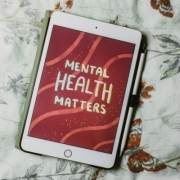4 Signs You Might Have ADHD
Attention-Deficit/Hyperactivity Disorder (ADHD) is a common condition that affects both children and adults. However, recognizing the signs isn’t always straightforward, as they can often overlap with other issues or be mistaken for behavioral problems. In this article, we’ll explore some key indicators and if you need ADHD testing.
1. Inattentiveness
One of the primary signs of ADHD is inattentiveness. This can occur as difficulty in maintaining focus during tasks or conversations, frequently losing items necessary for daily activities, and being easily distracted by external stimuli. According to the Substance Abuse and Mental Health Services Administration, half of all mental health disorders show first signs before a person turns 14 years old, and three-quarters begin before age 24, which is why early detection is important. If you find that these symptoms have been present since childhood, it might be worth seeking a professional evaluation.
2. Hyperactivity
Hyperactivity is another hallmark symptom, especially noticeable in children. This can present as an inability to sit still, excessive talking, and a need to be constantly moving or fidgeting. While many children are naturally energetic, ADHD-related hyperactivity is typically more pronounced and continuous. Adults might not showcase this physical hyperactivity but could instead feel restless or have difficulty engaging in quiet activities.
3. Impulsivity
Impulsivity is the third key sign of ADHD. Those affected may have difficulty waiting their turn, interrupt others frequently, or make decisions without considering the long-term consequences. This behavior often leads to challenges in social settings, school, or work environments. Being aware of these patterns, especially if they occur consistently, can be a crucial step in identifying ADHD. If you have experienced these symptoms, you may need to consider ADHD testing.
4. Dysregulation
Emotional dysregulation is a common challenge for individuals with ADHD, characterized by intense and fluctuating emotions. They often struggle to manage feelings of frustration, impatience, and anger, which can lead to emotional outbursts and difficulty in interpersonal relationships. Learning strategies for emotional self-regulation, such as mindfulness techniques and cognitive behavioral therapy, can significantly improve coping mechanisms and overall quality of life for those affected by ADHD.
Living with ADHD can be challenging, but it’s important to remember that a diagnosis is the first step towards effective management and support. If you recognize these signs in yourself or a loved one, consider consulting a healthcare professional for a comprehensive evaluation. Early intervention can significantly improve your quality of life and help develop strategies to manage the condition more effectively. If you are looking for ADHD testing, reach out to our team today at Appalachian Counseling and Psychological Services.







